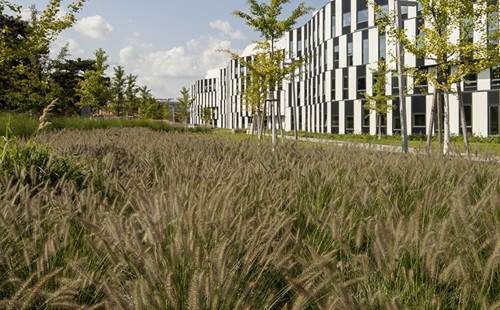Impact Evaluation "uptraded" (Get Active Award Winner Project 2021)

As every year, the winning project of the Get Active Social Business Award (GASBA) 2021, "uptraded", was evaluated by the NPO Competence Centre. Uptraded is a swipe & match clothing exchange app that offers a digital way to swap clothes. The swipe & match principle has so far mainly been used in dating apps such as Tinder. Registered users can swipe through the clothes of others and the correct sizes and styles are automatically displayed. A mutual "like" - i.e. when both users have swiped to the right - creates a non-binding "fit". This opens a chat function and the users can arrange to swap their clothes. In addition to the app, uptraded also organises physical clothing swap events at various locations in Austria.
Specifically, a pragmatic impact analysis was used for the evaluation to check whether the assumed effects of the project were actually achieved. At the beginning, the key stakeholders of the project were defined, including the desired effects in each case. In order to enable an assessment of the achievement of the hypothetical impacts and also to ascertain impacts that had not yet been considered but had materialised, interviews were conducted with the key stakeholders: the users, the partners and the employees.
Users report that the primary positive effect is saving money by having access to clothes that are new to them without having to buy them. This also prevents the bad feeling that comes from buying fast fashion. Uptraded is a way for them to increase or realise their environmental awareness through easy access to sustainable clothing. Furthermore, uptraded allows users to satisfy their need for fashion variety and try out new styles. Swapping via uptraded is less overwhelming than via comparable platforms and is fun. Social effects, i.e. the creation of a sense of community and social interaction, only occur to a limited extent, as do the expansion of knowledge (in some cases already high levels of prior knowledge) and inspiration. Due to various problems, such as ghosting or bugs, users are sometimes frustrated; they are only partially satisfied with the success rate (relative to the time invested). The reduction of social exclusion (few high-quality items of clothing on the app) and sensible space procurement as well as the assumed negative effects of harassment and increased screen time did not materialise.
The partners of uptraded benefit above all from an expanded offering for their community resulting from the collaboration. They can also make a contribution to the topic of sustainability through the cooperation. The organisations were able to improve their image to some extent and the members of their communities were able to network with each other to a certain extent; however, this could be further intensified through additional features. Some of these members could also be sensitised to the topic - although most of them were already sensitised beforehand. In some cases, uptraded enables communication with the community, but this could also be improved with additional features. Externally, the collaboration with uptraded provides content for external communication, but this is only of moderate relevance. The network of organisations could be partially expanded, although additional efforts from all sides would be beneficial for the development of a superordinate network. The organisations do not draw any conclusions from the user data. To a small extent, the cooperation leads to frustration, although productive and efficient cooperation was also emphasised. The respondents are satisfied with the success rate compared to the resources invested.
These results, plus some recommendations for action derived from the effects and interviews, can help uptraded to further develop the social business effectively.
